Marketing is undergoing a significant transformation thanks to AI tools, making it easier for businesses of all sizes to connect with customers in meaningful ways. The focus here is on three core techniques: personalization, automation, and content creation. This article highlights the most effective AI marketing tools available in 2024 that can help amplify your strategies, streamline processes, and enhance customer interactions, regardless of your business scale.
By examining tools like Intercom’s AI chatbot, ActiveCampaign’s predictive email system, and content generators like Jasper and OpusClip, you’ll see how AI can automate repetitive tasks and unleash your creative potential. The insights shared here will empower you to leverage these technologies, ensuring you stay competitive in today’s fast-paced market. Exploring these practical applications of AI will not only save you time but also improve the effectiveness of your marketing campaigns.
Introduction to AI in Marketing
Table Of Contents
ToggleOverview of AI’s Role in Marketing
You might have heard the buzz about artificial intelligence (AI) transforming marketing strategies. In today’s fast-paced digital landscape, AI is playing a crucial role in how brands connect with consumers. It’s not just a trend but a fundamental change in the way you can analyze customer data, personalize experiences, and predict future behaviors. By leveraging advanced algorithms and machine learning, AI empowers marketers like you to create more targeted and efficient campaigns that resonate with your audience.
Benefits of Integrating AI into Marketing Strategies
Integrating AI into your marketing strategies comes with a plethora of benefits. First and foremost, AI can help you automate repetitive tasks, freeing up your time to focus on creative and strategic thinking. Imagine having the ability to analyze massive amounts of data in seconds, pulling insights that were once hidden in spreadsheets. This means you can make data-driven decisions faster and more accurately.
Moreover, AI enhances personalization at scale, enabling you to deliver tailored content and experiences based on consumer preferences and behaviors. Personalization can lead to higher engagement rates, increased conversions, and improved customer loyalty—who wouldn’t want that? Ultimately, by using AI, you’re not only optimizing your marketing efforts but also gaining a competitive edge in your industry.
Predictions for AI Marketing Trends in 2024
Looking ahead to 2024, the role of AI in marketing is expected to expand even further. You can anticipate a rise in hyper-personalization, where tailored experiences become the norm rather than the exception. Additionally, AI-driven insights will likely evolve, allowing for even more precise targeting and segmentation strategies.
Automation will continue to shape marketing operations, ensuring that you operate more efficiently and effectively. Furthermore, as trends in natural language processing advance, tools that create content will become more sophisticated, allowing for the seamless generation of high-quality material. In essence, 2024 is set to be a transformative year for AI in marketing, and staying ahead of these trends is crucial for your marketing success.
Personalization in Marketing
Importance of Personalized Customer Experiences
You probably know that personalization is key in today’s competitive marketplace. In an era where consumers are bombarded with messages from every direction, they are craving tailored experiences that speak directly to their needs and interests. Personalized marketing helps you build connections with your audience, enhancing customer satisfaction and loyalty. When customers feel valued, they are more likely to convert and become repeat buyers.
Techniques for Dynamic Content Personalization
To effectively personalize your marketing efforts, there are several techniques you can utilize. One effective method is segmentation, which involves dividing your audience into specific groups based on demographics, interests, or behaviors. This allows you to tailor your messages specifically to the segments most likely to respond.
Another technique is predictive analysis, where you use past data to predict future behaviors. This can help you send the right message at just the right time. Conditional content blocks are also essential, enabling you to show different content to different users based on their previous interactions. Together, these techniques can create a dynamically personalized experience that engages users and drives conversions.
Case Studies of Successful AI Personalization
There are numerous examples of brands leveraging AI for personalization effectively. Take Netflix, for instance; by analyzing viewing habits, it offers personalized recommendations that keep users engaged for hours. Similarly, Amazon uses AI to analyze your past purchases and suggest items you’re likely to buy next. These personalization strategies are not just about enhancing the user experience; they’re also proven methods for increasing sales and customer loyalty.
Key AI Marketing Tools for Personalization
Intercom’s Fin: AI Chatbot for Customer Support
Intercom’s Fin is a powerful AI chatbot designed to enhance your customer support. Imagine having a virtual assistant that interacts with your customers in real-time, answering frequently asked questions and resolving issues instantly. Fin is capable of routing inquiries to the appropriate team, ensuring that your customers receive the support they need without delay. This quick and efficient service can significantly improve customer satisfaction and loyalty.
ActiveCampaign: Predictive Email Follow-up Success
ActiveCampaign takes personalization a step further with its predictive email follow-up functionality. By analyzing customer data, ActiveCampaign determines the best timing and content for your email communications. For instance, if your audience tends to engage with emails in the evening, ActiveCampaign can optimize your send times accordingly. This level of personalization can lead to higher open rates and engagement, ultimately resulting in increased sales.
Sendspark: Crafting Personalized Video Messages
Sendspark is another fantastic tool you can use to create personalized video messages. With Sendspark, you record one video and personalize it for each recipient by incorporating their names or specific details. This tool makes it easy to connect with customers on a personal level, allowing them to feel seen and valued. Personalized videos can have a big impact on engagement, making them a great addition to your marketing toolkit.
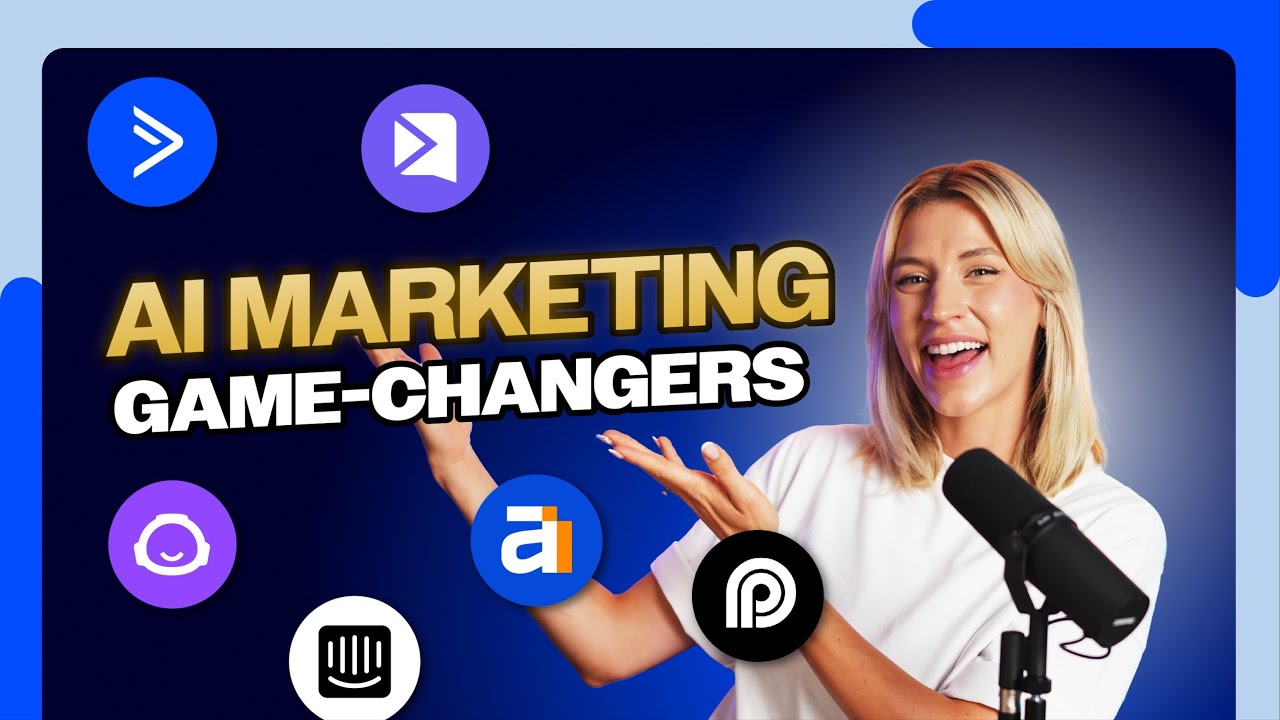
Automation in Marketing
Defining Marketing Automation and Its Significance
Marketing automation refers to the use of software to automate repetitive marketing tasks. This encompasses functions like email marketing, social media posting, and ad campaigns. The significance here is that you can focus your time and energy on strategy, creativity, and personalization, as the software handles the mundane tasks.
Types of Tasks That Can Be Automated with AI
There are numerous tasks that can be automated using AI. For instance, lead scoring automates the process of identifying potential customers based on their engagement and behavior. Campaign optimization can also be automated, helping you decide which strategies yield the best results based on data. Other tasks include automating social media posts, sending follow-up emails, and even generating reports. All of these can save you time and increase your marketing efforts’ overall efficiency.
The Future of Automation in Marketing Strategies
As we look toward the future, automation will become even more integrated into marketing strategies. Enhanced AI capabilities will allow for more sophisticated automation tools that not only complete tasks but also provide predictive insights on what to do next. You can expect to see a greater reliance on AI to manage dynamic marketing campaigns that adapt in real-time based on user behavior and environmental factors.
Top AI Tools for Marketing Automation
Ahrefs AI Keyword Intent: Search Optimization
Ahrefs’ AI Keyword Intent tool is designed to help you refine your search optimization efforts. By understanding the intent behind search queries, you can create content that aligns perfectly with what users are searching for. This tool simplifies keyword research, enabling you to optimize your website effectively and increase visibility in search results.
ActiveCampaign’s Recommended Automations: Efficiency in Action
ActiveCampaign’s recommended automations take the guesswork out of marketing. This tool analyzes your business goals and creates tailored automation workflows to help you achieve them. By using pre-built templates, you can streamline your advertising efforts, ensuring that potential customers receive timely and relevant communications.
Zapier: Connecting Various Marketing Tools Seamlessly
Zapier is your go-to tool for connecting various marketing applications without requiring any coding skills. By automating the flow of data between your different software, you can streamline your marketing processes and gather data in one easy-to-manage location. Whether it’s syncing your email marketing tool with your CRM or automating social media postings, Zapier makes it happen seamlessly.
Content Creation Tools Powered by AI
The Evolution of Content Creation with AI
Content creation has undergone significant changes with the introduction of AI tools. You can now produce high-quality written and visual content much faster than before. AI-driven content creation tools can generate ideas, provide outlines, and even create drafts, making the process more efficient and less time-consuming for you.
Benefits of Using AI in Content Production
The advantages of using AI in content production are manifold. AI can analyze trends and audience preferences, helping you create content that resonates with your target market. Additionally, AI can assist in optimizing your content for search engines, ensuring it reaches a broader audience. Enhanced productivity is another key benefit; AI tools can automate routine tasks, allowing you to focus on higher-level creative thinking and strategy.
Trends in AI-Generated Content for 2024
In 2024, expect to see even more advanced AI content generation tools. This includes the ability to generate nuanced, contextually relevant content that feels human. Additionally, multimedia content, such as videos and podcasts, will also be prominent in AI-generated formats. The importance of storytelling remains; AI will help tailors these narratives to engage users effectively.
Leading AI Content Generation Tools
Jasper: All-in-One Content Generation
Jasper is an all-in-one content generation tool that allows you to create engaging blog posts, marketing copies, emails, and even social media content quickly. With its user-friendly interface, you can input key details, and Jasper will generate high-quality content tailored to your needs. Imagine how much faster your content creation process could become with a tool like this in your arsenal!
OpusClip: Transforming Long-form Content to Short Clips
OpusClip is perfect for those who want to repurpose long-form content into shorter, engaging clips for social media or other platforms. This tool employs AI algorithms to identify key segments that are likely to resonate with your audience, helping you maximize the use of your existing content.
Copy.ai: Streamlining Copywriting Tasks
If you find yourself spending too much time on copywriting, Copy.ai can help streamline the process. With its AI-driven suggestions, you can quickly generate compelling copy for advertisements, blog posts, and marketing materials. This not only saves you time but also enhances the quality of your writing by providing creative ideas and angles you might not have considered.
Enhancing Creativity with AI
How AI Tools Can Aid in Brainstorming Ideas
You may be surprised to learn how significantly AI tools can elevate your brainstorming sessions. AI can analyze past content performance and suggest new topics based on audience interest and current trends. This creates an opportunity for you to generate fresh ideas and angles that may have otherwise gone unnoticed.
Role of AI in Editing and Optimizing Content
AI tools also play a significant role in the editing and optimization processes. They can offer suggestions for improving grammar, enhancing clarity, and optimizing SEO, ensuring that your content meets both readability and searchability standards. Imagine having a personal assistant ready to polish your content and enhance its overall effectiveness.
Examples of Improved Creativity Through AI Tools
Several brands have successfully integrated AI into their creative processes. For instance, The Washington Post utilizes AI to generate headlines based on reader reactions and preferences, leading to higher engagement rates. Similarly, many marketers benefit from AI tools that provide insights on optimal wording, content placement, and visual elements that resonate with their audience.
Challenges and Considerations
Understanding the Limitations of AI Tools
While AI tools are incredibly powerful, it is essential to recognize their limitations. AI may not fully capture the nuances of human emotion, creativity, and cultural context. As valuable as algorithms can be, they should complement human skill rather than replace it completely.
Avoiding Over-reliance on Automation
Another challenge is the potential over-reliance on automation. While automation can significantly enhance efficiency, it’s still crucial for you to maintain a human touch in your marketing efforts. Ensure that your automated communications feel personalized and engage your audience in meaningful ways. Striking the right balance between automation and personal interaction can lead to the best outcomes.
Best Practices for Integrating AI into Marketing Strategies
To effectively integrate AI into your marketing strategies, start by defining clear objectives. Determine specific areas where AI can add value, whether through personalization, automation, or content creation. Continually test and refine your approach to ensure that you’re leveraging the technology effectively without losing the essence of human connection in your marketing efforts.
Conclusion
Summary of Key AI Marketing Tools
As we wrap up, it’s clear that the integration of AI into marketing strategies has changed the game fundamentally. Tools like Intercom’s Fin for customer support, ActiveCampaign for email follow-ups, and Sendspark for personalized video messaging are just some examples of how AI can elevate your marketing efforts. Additionally, platforms like Ahrefs for search optimization, Zapier for automation, Jasper for content generation, and more provide tremendous value.
Final Thoughts on the Future of AI in Marketing
The future is bright for AI in marketing. As technology continues to evolve, the capabilities of AI tools will expand, offering even more opportunities for you to engage, convert, and retain customers. Being early adopters of these tools can give you a significant advantage over your competition.
Encouragement to Experiment with AI Tools for Marketing Success
Don’t hesitate to dive in and experiment with AI tools in your marketing strategy. The landscape is ripe with opportunities for innovation and optimization. By leveraging these technologies, you’re not just streamlining your processes—you’re also setting yourself up for success in a rapidly changing marketplace. So go ahead, embrace the future, and see how AI can take your marketing strategy to new heights!



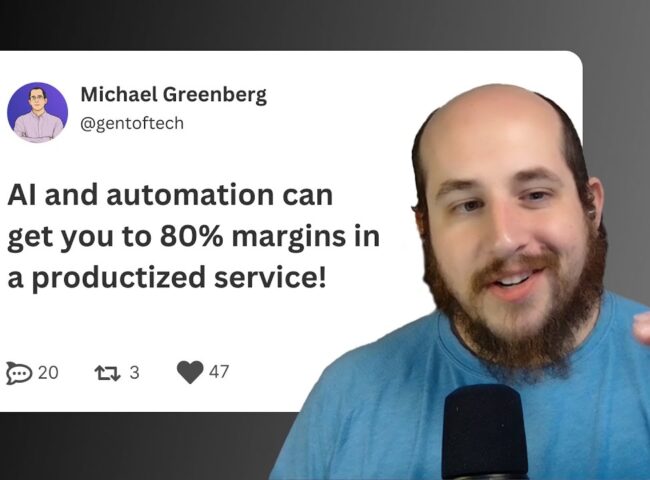
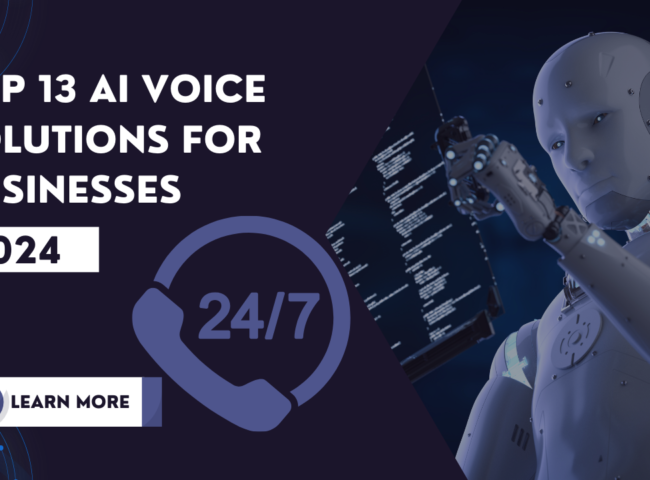
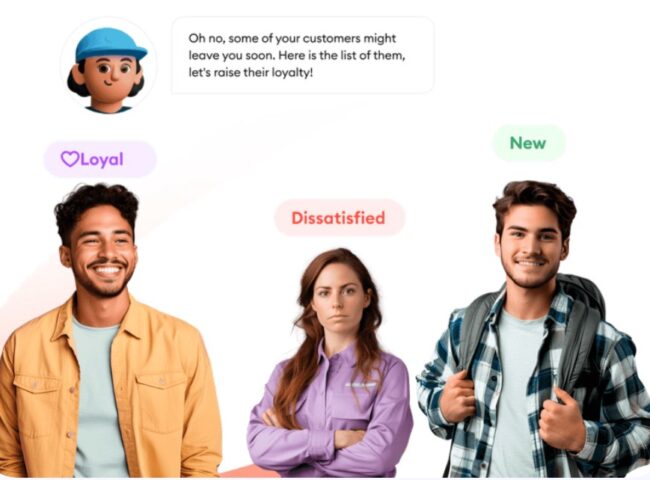
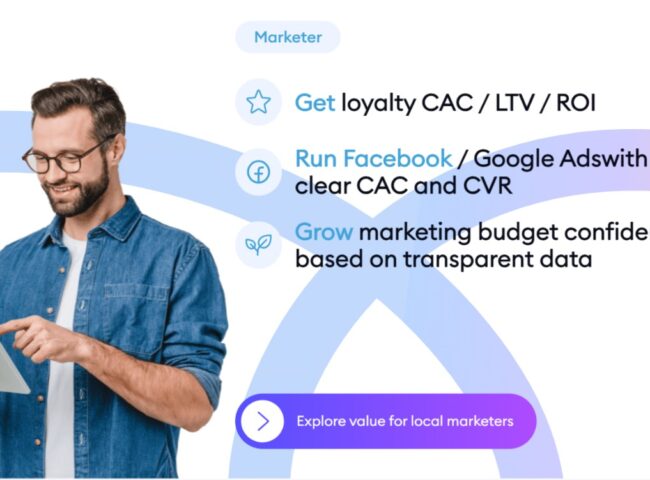
Leave feedback about this